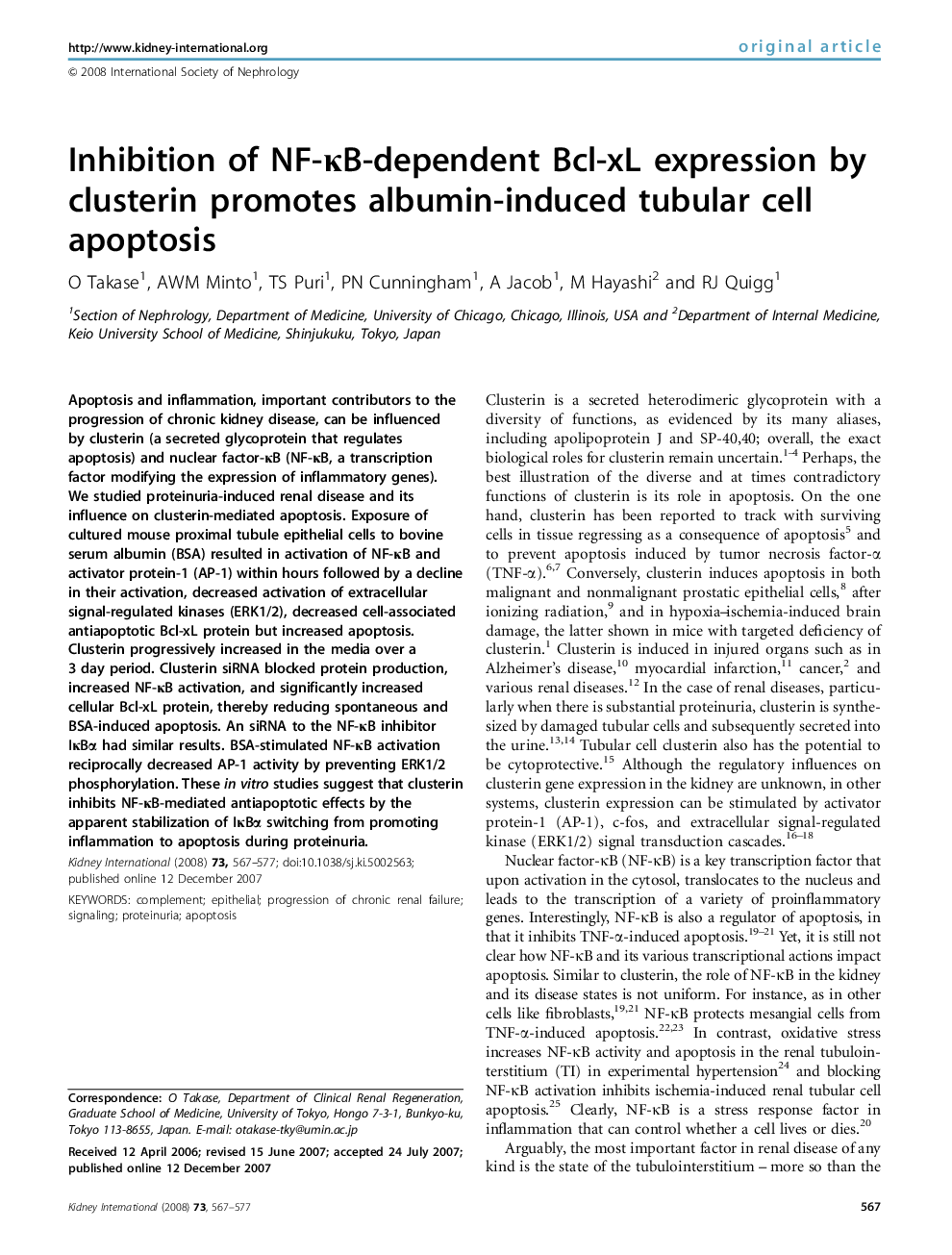| Article ID | Journal | Published Year | Pages | File Type |
|---|---|---|---|---|
| 3885790 | Kidney International | 2008 | 11 Pages |
Apoptosis and inflammation, important contributors to the progression of chronic kidney disease, can be influenced by clusterin (a secreted glycoprotein that regulates apoptosis) and nuclear factor-κB (NF-κB, a transcription factor modifying the expression of inflammatory genes). We studied proteinuria-induced renal disease and its influence on clusterin-mediated apoptosis. Exposure of cultured mouse proximal tubule epithelial cells to bovine serum albumin (BSA) resulted in activation of NF-κB and activator protein-1 (AP-1) within hours followed by a decline in their activation, decreased activation of extracellular signal-regulated kinases (ERK1/2), decreased cell-associated antiapoptotic Bcl-xL protein but increased apoptosis. Clusterin progressively increased in the media over a 3 day period. Clusterin siRNA blocked protein production, increased NF-κB activation, and significantly increased cellular Bcl-xL protein, thereby reducing spontaneous and BSA-induced apoptosis. An siRNA to the NF-κB inhibitor IκBα had similar results. BSA-stimulated NF-κB activation reciprocally decreased AP-1 activity by preventing ERK1/2 phosphorylation. These in vitro studies suggest that clusterin inhibits NF-κB-mediated antiapoptotic effects by the apparent stabilization of IκBα switching from promoting inflammation to apoptosis during proteinuria.
